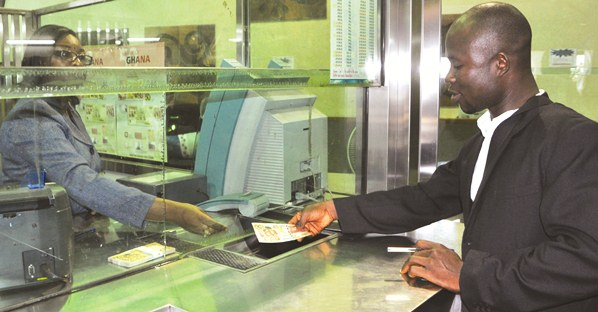
Big boost to banking
The Parliament of Ghana, on Tuesday, July 12, passed yet another Bill, this time one that is aimed at strengthening the banking system even the more.
The Banks and Specialised Deposit-Taking Institutions Bill, 2015, sought to amend and consolidate the laws relating to deposit taking, and “to regulate institutions which carry on deposit taking business”.
And so it did find favour with the 275 legislators (at least the majority of them) for it to become law once the President has assented to it.
This is good news in many ways. The drafters of the Bill, recognising the impact of the recent development in the banking sector on supervision and regulations, generally, urged the legislators, through an attached memorandum that explained the rationale behind it, to give the Bill the nod.
“The financial system is now relatively diversified and the number of financial intermediaries and their scale of operations have increased notably in the banking sector”, the memorandum explained, pointing out also that “to ensure that banks are able to play their requisite role in the development process of the country, Government has taken steps to enhance the performance of the banking system”.
In actual fact, the banking sector has experienced considerable reforms in recent past, with the introduced tier system reclassifying and repositioning banks based on assets and financial muscle.
At the apex of the current licensing regime is the universal banking licence, which allows the financial institution that qualifies for it to dabble in other securities as well. Others are not permitted to do same, and banks and financial institutions so classified operate according to their class.
“The financial sector reforms pursued by Government over the years have begun yielding positive results”, says the memorandum, admonishing also that “an efficient and effective banking industry is critical for the development process of the country”. And that is well appreciated.
The importance of a strong banking sector to an economy cannot be over-emphasised. In its simplest form, a bank would ordinarily take deposit from customers and give them back their money on demand.
In the chain, however, is that element of financial engineering by the banks that ensures that such arrangements as mobilising money through depositors could also mean that firms, governments and individuals could all benefit from it through loans and other credit advances.
The ensuing relationship is where banks also make money through interest income and other charges. In this role, banks and financial institutions have critical roles to play in ensuring that the wheel of the economy was well oiled to promote production, which also results in the process that creates space for demand, which creates space for employment also.
The importance of the multiplier effects of the simple role of deposit mobilisation also means that there was the need for the role and activities of the banks to be properly guided.
That guide is also necessary because banking failures have the contagion effect of grinding economic activities in a country to a halt. And it doesn’t take an awful lot for financial institutions and regulators to find themselves in such spot of bother.
For instance, a simple request for payment by a client of a bank that is not honoured per the contractual arrangements between the bank and the customer could trigger a harsh mass withdrawal effect.
The attendant problems could be a complete collapse of the banking sector. This is not a far-fetched story as just recently Greece and Cyprus showed how an economy suffers when the banks are not able to deal with requests from depositors.
“Currently, cross-border contagion is an important risk as the collapse of a parent bank could easily undermine confidence”, says the memorandum.
The position taken by this Bill is that the law (with Presidential assent) must be firmly applied to banks, specialised deposit-taking institutions, financial holding companies, and affiliates of banks, specialised deposit-taking institutions, and financial holding companies.
However, says the Bill, it “does not apply to credit unions which are subject to licensing and supervision under the Non-Bank Financial Institutions Act, 2008 (Act 774)”.
Reinforcing the role of the central bank in the implementation of the Law when fully operational, it stresses that the Bank shall have overall supervisory and regulatory authority in all matters relating to deposit-taking business, among other key functions and responsibilities.
Everyone benefits from this Bill because it seeks to address identified gaps and inconsistencies in the banking laws, especially the emphasis placed on deepening cooperation with regional counterparts to improve the regulation and supervision of foreign banks that are active in the country.
The lay interpretation of this is that if hitherto big banks (conglomerates) which had subsidiary interest in other securities, firms, industrial and insurance companies could not be properly supervised because they were not handled as a consolidated unit, the new provisions made it possible for such gaps to be narrowed and ultimately closed.
If you were wondering why such a move was so important, then the explanation is this: Generally in accounting and other financial reporting requirements, institutions may be required to disclose related party transactions.
Such transactions are important in disclosure requirements because they could hide material risk elements. For instance, an inspecting authority or supervising body may want to know whether such transactions were done “arms-length” or were treated anyhow. There could also be issues to do with transfer pricing.
By and large, the new Bill demonstrates a desire to strengthen the banking sector, a requirement for financial stability and ultimately growth of the economy.
(